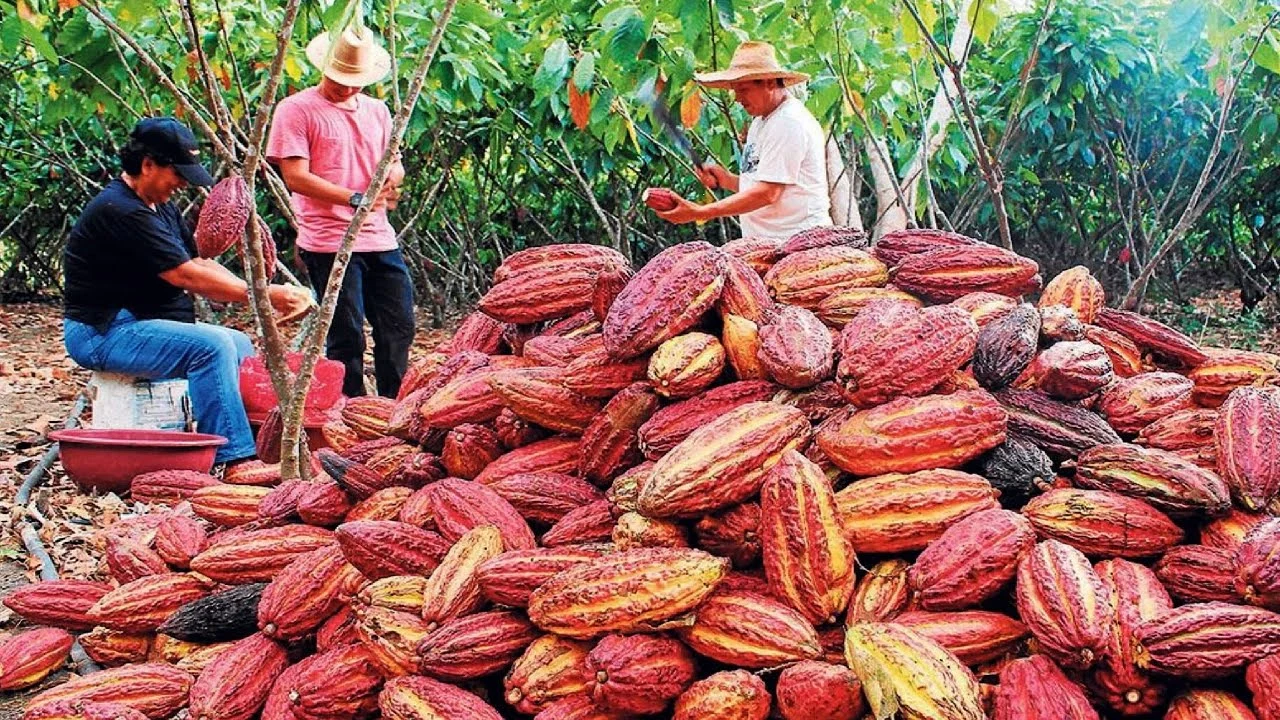Brazil’s cocoa industry is experiencing a notable revival, rebounding from a major setback in the 1980s when disease ravaged its once globally dominant cocoa crops.
Today, the nation is on the brink of a cocoa renaissance. Fresh investments are flowing in, rejuvenating both new and traditional cultivation areas.
Valmir Ortega of Belterra Agroflorestas believes Brazil can regain its global cocoa supply chain leadership.
His firm, backed by Cargill Inc. and a Vale SA investment fund, plants cocoa trees in rehabilitated rainforest zones.
This strategy is part of Brazil’s broader goal to double cocoa production by 2030, as outlined by the national cocoa commission, Ceplac.
Ceplac’s director, Lucimara Chiari, anticipates that by 2025, Brazil will produce enough cocoa to satisfy domestic demand.
This achievement would reduce Brazil’s need to import cocoa beans, thereby alleviating the global shortage.

The cocoa market has suffered from supply disruptions due to adverse weather and disease in top-producing countries like Ivory Coast and Ghana.
These challenges have led to a nearly 70% surge in cocoa futures prices this year.
CocoaAction Brazil has identified over 24 projects aimed at enhancing the local cocoa supply chain.
These projects represent an investment exceeding 150 million Brazilian reals ($30.6 million).
Farmers like Moisés Schmidt are emblematic of this resurgence. He recently started growing cocoa in Barreiras, Bahia, far from traditional cocoa-growing areas.
In partnership with Cargill, Schmidt is diversifying his family’s farming business, previously focused on cotton, soy, and corn.
Joining the Cocoa Trend
Brazil Biofuels SA, known for palm oil-based biofuel, is also joining the cocoa trend. They plan to cultivate 1,000 hectares of cocoa next year, diversifying their crop portfolio.
Despite the strides being made, Brazil’s cocoa production is still a small portion of the global output, dominated by African nations.
However, Brazilian farmers are in a position to respond to rising global demand, which is not as feasible for many African farmers due to poverty and fixed incomes.
Increased Brazilian production could eventually lead to lower global cocoa prices, though this is a long-term effect.
Brazil’s productivity, while not yet matching Africa’s levels, is improving through better farming practices and investments in tree care.
The health of cocoa trees remains a critical challenge for Brazil’s ambitions. A new disease, frosty pod rot, poses a significant threat, requiring further investment and vigilance.
Anna Paula Losi of AIPC asserts that Brazil is well-equipped for these challenges, armed with enhanced knowledge and resources.
This cocoa revival symbolizes Brazil’s agricultural resilience and its potential to reshape the global cocoa market.

